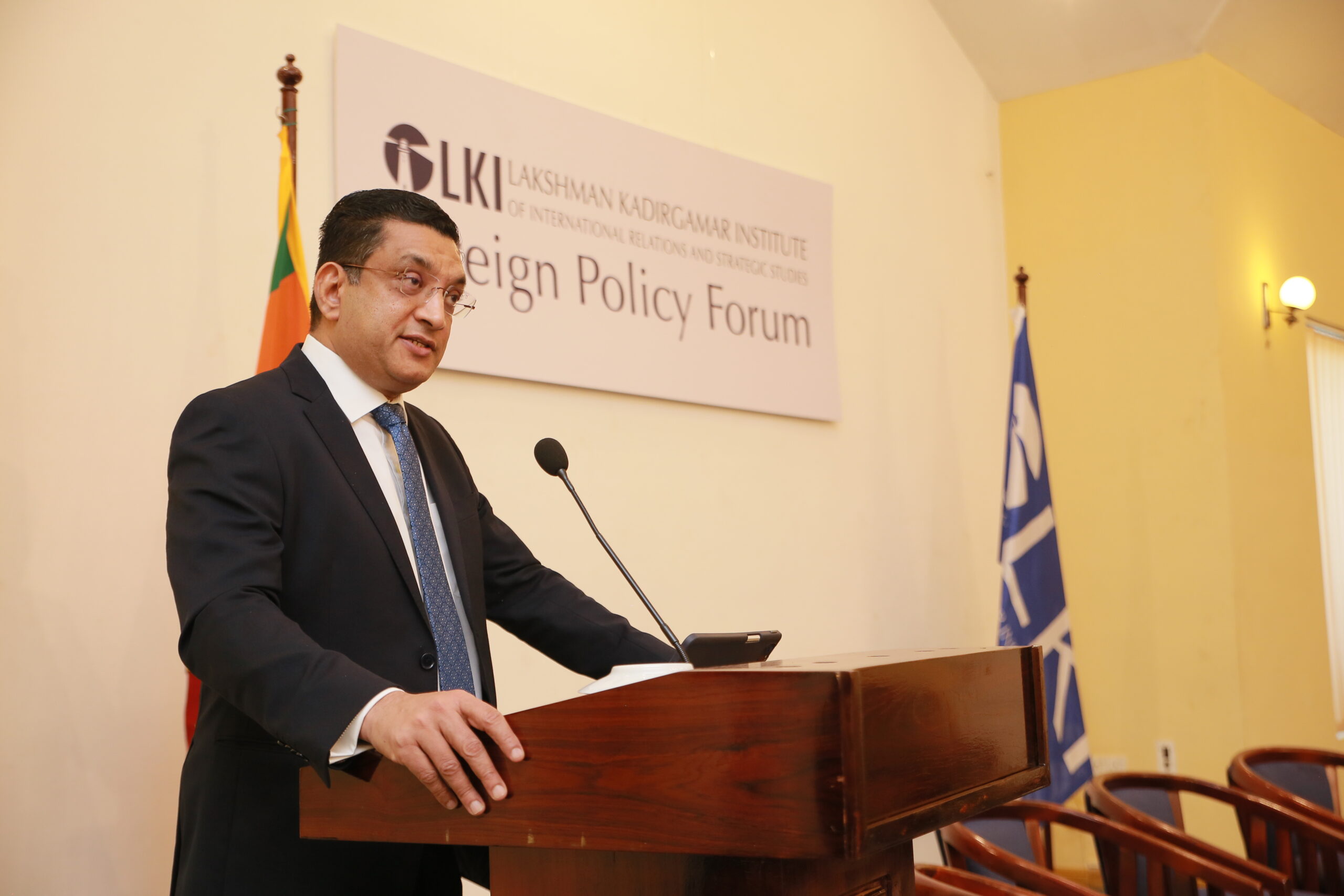 (Image courtesy: LKI)
(Image courtesy: LKI)
Sri Lanka's foreign minister said his government must follow a policy that ensures they are “not forced or coerced into a camp to make sovereign decisions,” as he spoke in Colombo last week.
“Countries like Sri Lanka if we learn from our history cannot take sides," claimed Ali Sabry. "Sri Lanka must be open to working with anyone. Non-alignment means not becoming a bystander... Non-alignment means you are not forced or coerced into a camp to make sovereign decisions. But you make decisions. And you take your own choices.”
He made these remarks when he delivered the opening address at the 3rd ‘LKI Foreign Policy Forum’, held on the theme ‘Reassessing Non-Alignment in a Polarised World’ an event of the Lakshman Kadirgamar Institute of International Relations and Strategic Studies (LKI) in Colombo.
Sabry also referenced the ongoing Israeli assault in Gaza, adding that the recent Non-Aligned Movement Summit in Uganda this year “drew considerable attention to the humanitarian crisis in Gaza”. He reportedly “reaffirmed Sri Lanka’s solidarity with the Palestinian people and its commitment to supporting them in their quest to achieve their inalienable rights”.
Despite Sabry’s comments on Sri Lanka’s stance, his government has been deepening its ties with Israel. Recently Sri Lanka announced it was increasing air connectivity with Israel last week, as ties between the two countries continued to grow in recent months.
Israel’s Minister of Transport and Road Safety, Brig. Gen. Miri Regev was in Sri Lanka recently to sign an agreement will accelerate the process of sending Sri Lankan migrant workers to Israel and it will also enable Israeli businessmen to visit Sri Lanka with their families.
“I promised Sri Lanka that since they helped send Sri Lankans to work in Israel after the war started, I would swiftly expedite this agreement,” said Regev.
Regev also met with Sri Lankan president Ranil Wickremasinghe at the Presidential Secretariat, where the latter affirmed Sri Lanka’s “unwavering commitment to advocating for their safety and safe return of all Israeli hostages.”
We need your support
Sri Lanka is one of the most dangerous places in the world to be a journalist. Tamil journalists are particularly at threat, with at least 41 media workers known to have been killed by the Sri Lankan state or its paramilitaries during and after the armed conflict.
Despite the risks, our team on the ground remain committed to providing detailed and accurate reporting of developments in the Tamil homeland, across the island and around the world, as well as providing expert analysis and insight from the Tamil point of view
We need your support in keeping our journalism going. Support our work today.
For more ways to donate visit https://donate.tamilguardian.com.

